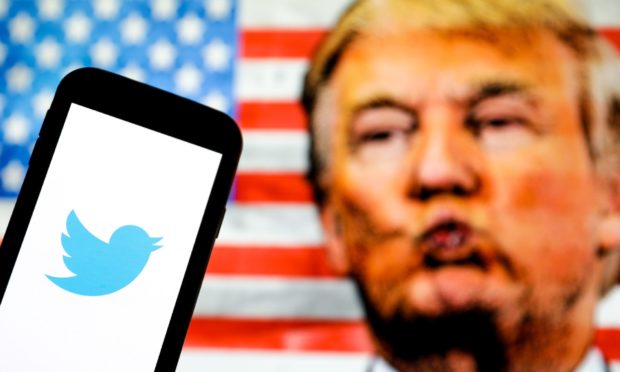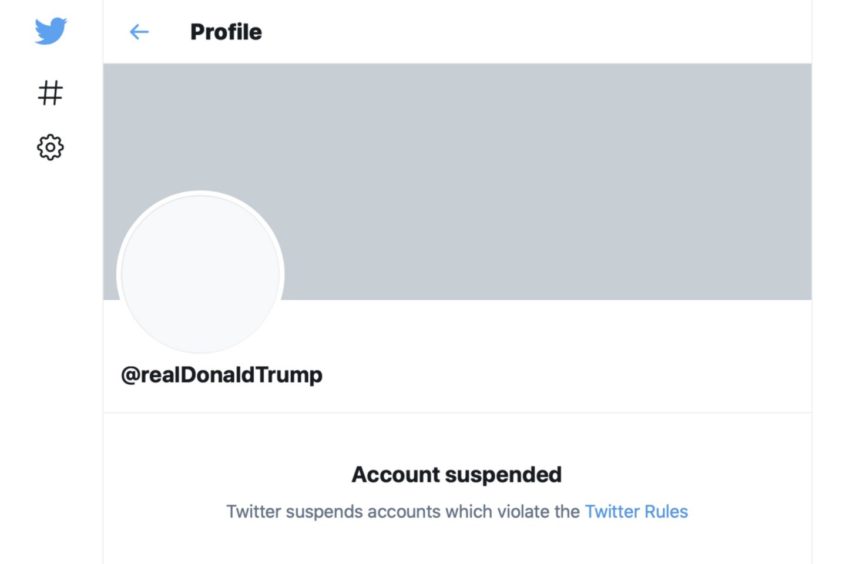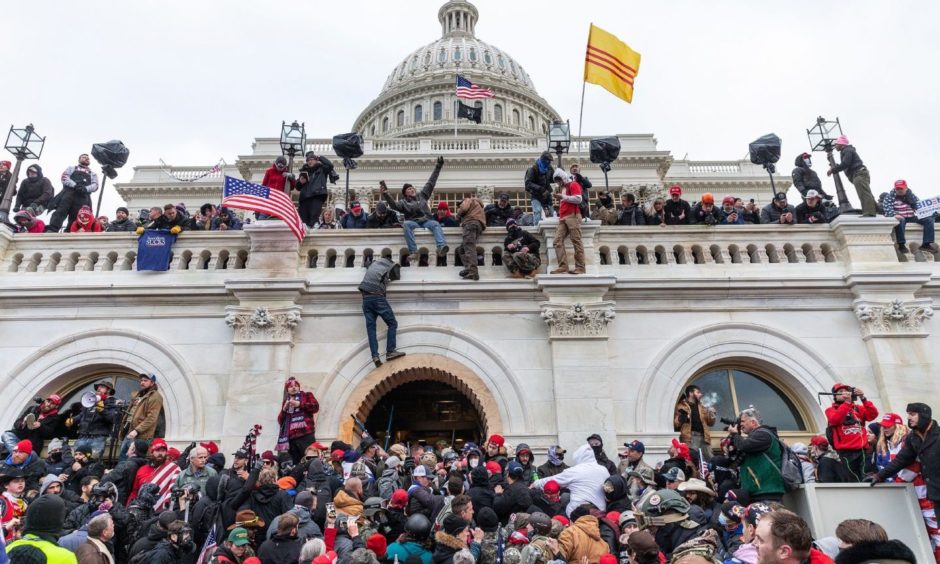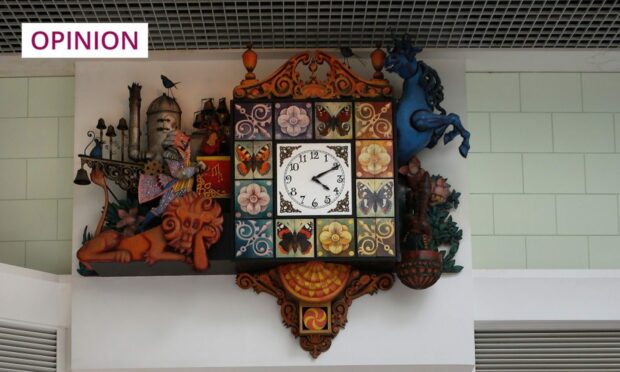With Donald Trump permanently banned from Twitter in the wake of shocking riots at the seat of American democracy, Jonathon Shafi – a writer and campaigner based in Glasgow – pens a column for The Courier on the corrosive, addictive and destructive power of social media.
You would not be reading this column had it not been for Twitter.
After making a point on the platform about the corrosive effect of social media on society, I was asked to expand on these thoughts in this newspaper. A neat example of the interplay between social media, and the mainstream press. You could argue then, that I should be thankful for Twitter. Evidently, it has helped to get a message across.
But many, in my view correctly, are concluding that the overall harm social media does outweighs the good. Millions of words have been written on this – and of the role of Big Tech in general. When the arguments are appraised in their totality, there is a compelling case not just for the democratisation and regulation of social media platforms, but for a deeper re-think.
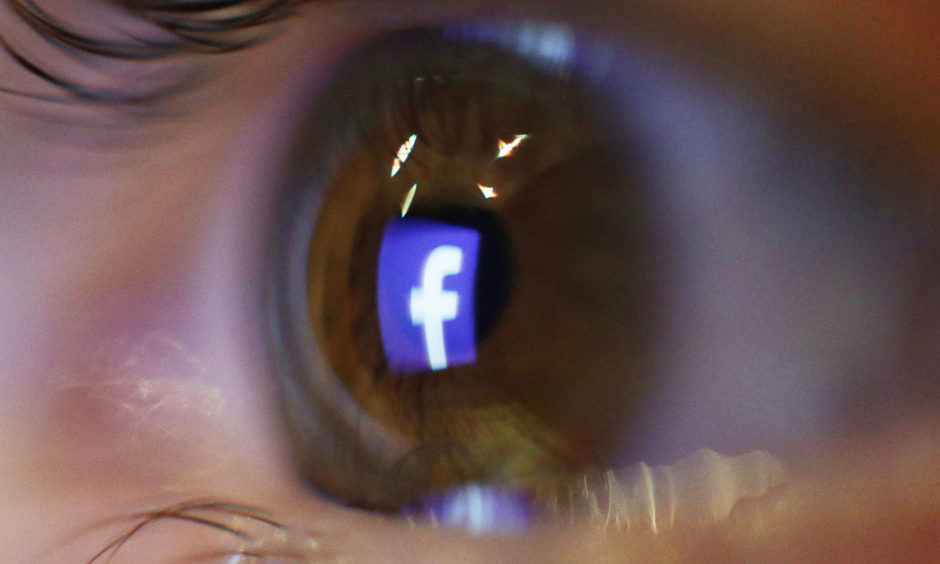
Above all else, social media platforms are a business, and profit in this sector is derived from traffic. Traffic to generate advertising revenue, traffic to develop the influencer industry, and traffic to sell access to millions of peoples’ feeds. Algorithms mediate between user and platform – with the objective being to hold attention and to keep rates of engagement high. A consciously constructed psychological entanglement is formed, sending tiny hits of dopamine with each notification, leading to addiction, among the plethora of social media related mental health issues.
No room for nuance
While communities have developed in the sphere of social media as a kind of social glue, there is very little currency in pursuing debate in a way that might constructively convince someone round to your point of view. There is no room for nuance – not if you want to be noticed. The atmosphere is one of bad faith from the outset, because of the way ideological silos are manufactured. But it is on this fertile terrain that individuals and organisations develop their social media brand and provocations. And those provocations, if impactful enough, come with television slots.
It is a well worn but effective strategy for ailing actors like Lawrence Fox to pursue. Make a bombastic or offensive statement, receive a tidal wave of social media reaction, then get a call from breakfast television. Before you know it, you’ve got millions of people watching an inane ‘debate’ as part of the ongoing ‘culture war’. Repeat this process enough times and what passes for public debate goes into stark decline. There is no need for accumulated knowledge, for experience or indeed for principles, but for the right grift.
Social media reach favours the powerful
Many hold that social media gives agency to the powerless, and it is true that it has been utilised by many grassroots campaigns. It has brought new voices forward. But the more money you have at your disposal, the more people you can reach, favouring the powerful. An issue may ‘trend’ but this is a fleeting hallucination of influence, not activism. Indeed, the most tenacious and talented organisers on the ground, usually have the lowest social media profiles. Yet they are far more able to win people to their causes. That kind of training has been usurped by social media, where all the wrong lessons about how to debate are on display. As a result social media breeds conformity, rather than the ability to critically engage.
But maybe the powerful are held to account? I think this is contestable. Investigative journalism has gone into freefall in the newspaper industry. And while this is not to deny the alternatives accessible on social media, there are diminishing returns because these platforms are based on the permanent and daily churn of scandal, no matter how contrived or myopic. This is not the only reason, but it is a part of the explanation as to why politicians rarely resign for previously sackable offenses. Why not just wait it out?
A new and bigger scandal will emerge in the next 24 hours – amplified by social media.
In an era riven by crises, people are looking for answers. YouTube channels have opened the door to the most fantastical of theories about how the world works. It may be that Donald Trump is waging a secret war with a satanic cabal as the QAnon phenomenon proposes. Maybe 5G is the cause of Covid-19. Any number of theories, often interlocking, have deluded millions of people. A cocktail of alienation and often justified grievance is all too ready to be monetised and exploited. But not without consequence.
Now – as a result of political instability – social media executives are under pressure. They are having to act to remove some of their major traffic drivers – including a sitting US President. And there are numerous examples of censoring content to protect vested and political interests.
Today they are more active referees. Perhaps it is in this unravelling process that the most important argument resides. That the handful of billionaires who own the social media platforms have accrued such unalloyed power as to represent a unique modern threat to democratic life, rather than a gateway to a more open society.
Our relationship to social media must radically change for the issues raised here to be addressed, and for genuine emancipation to be rediscovered.
